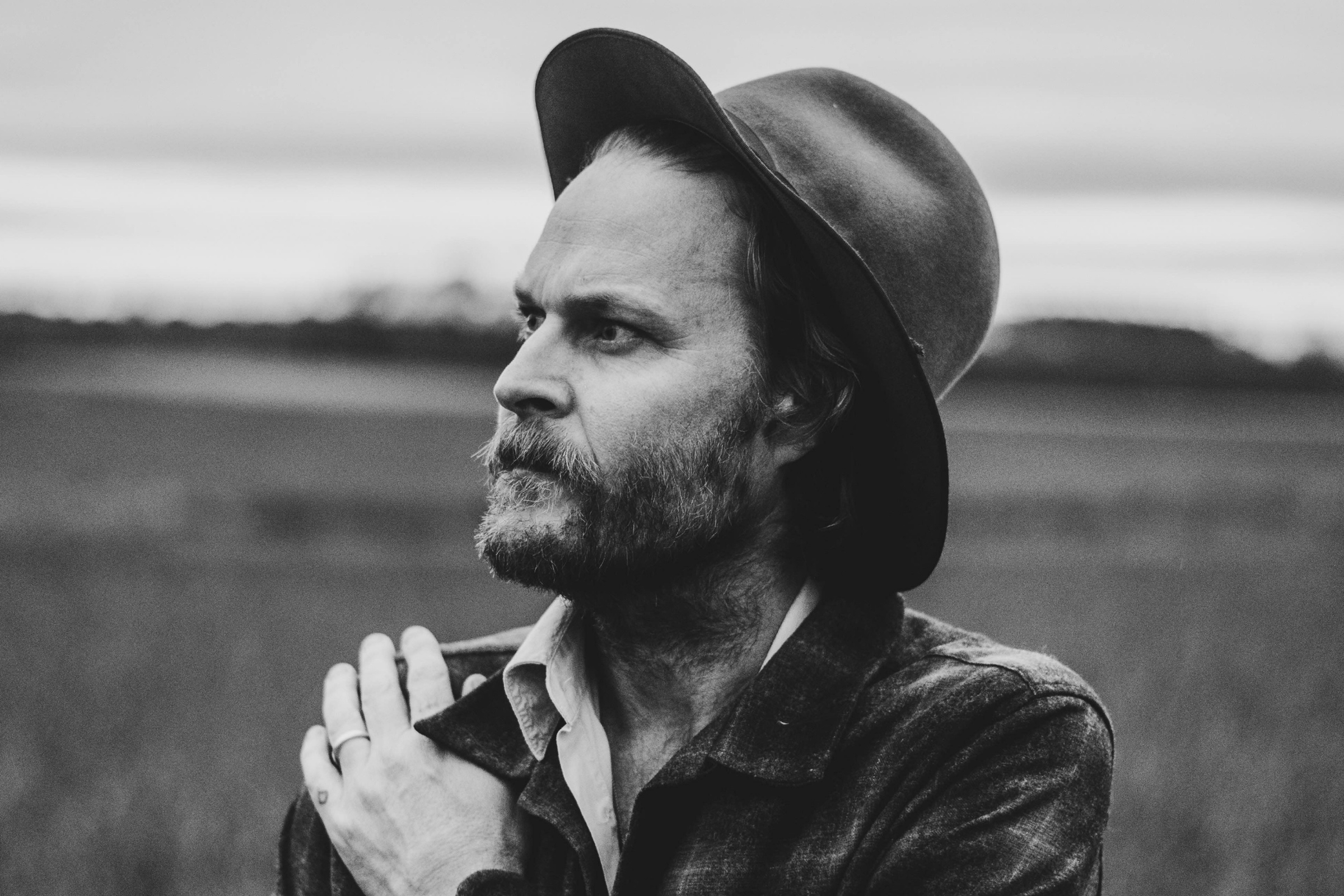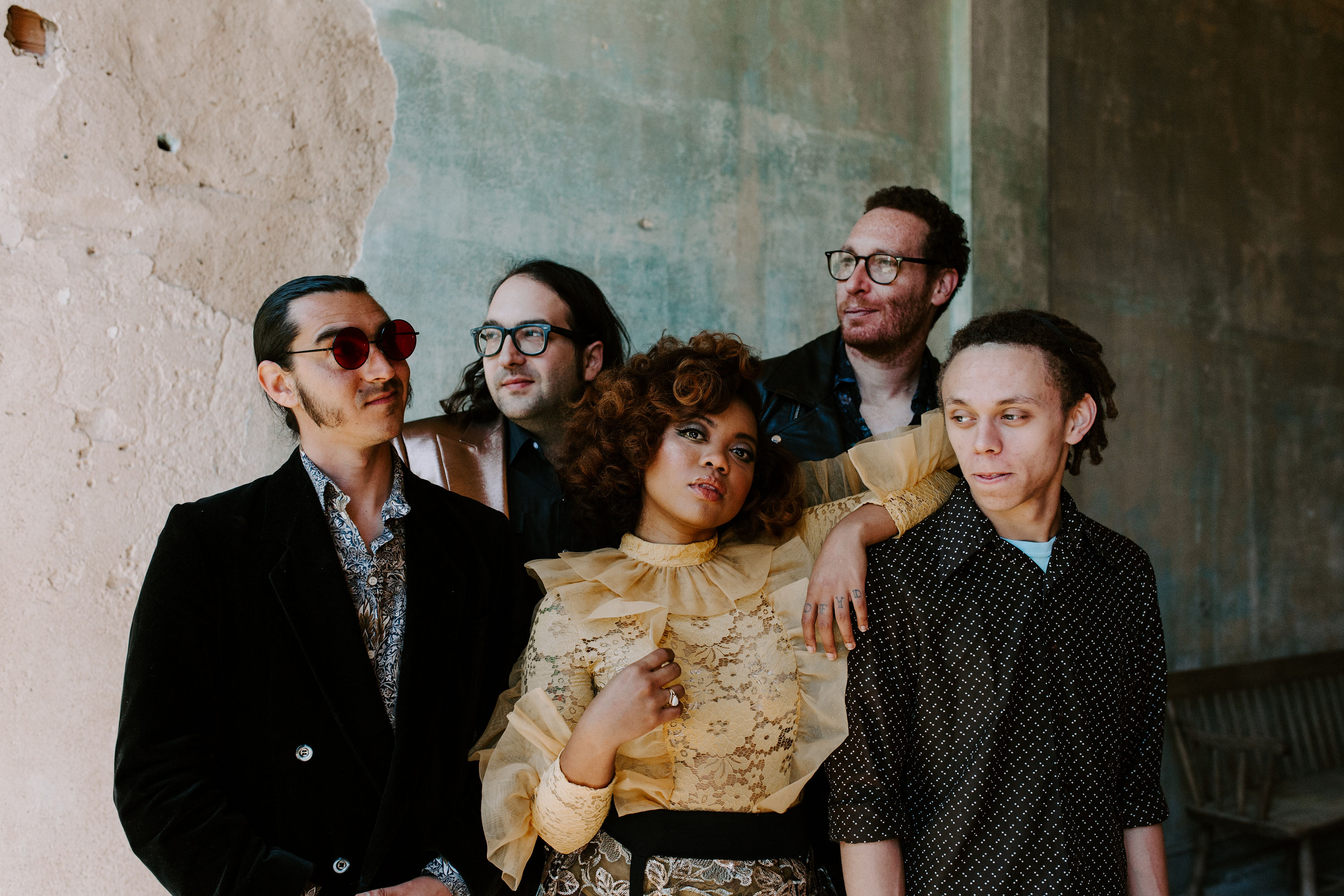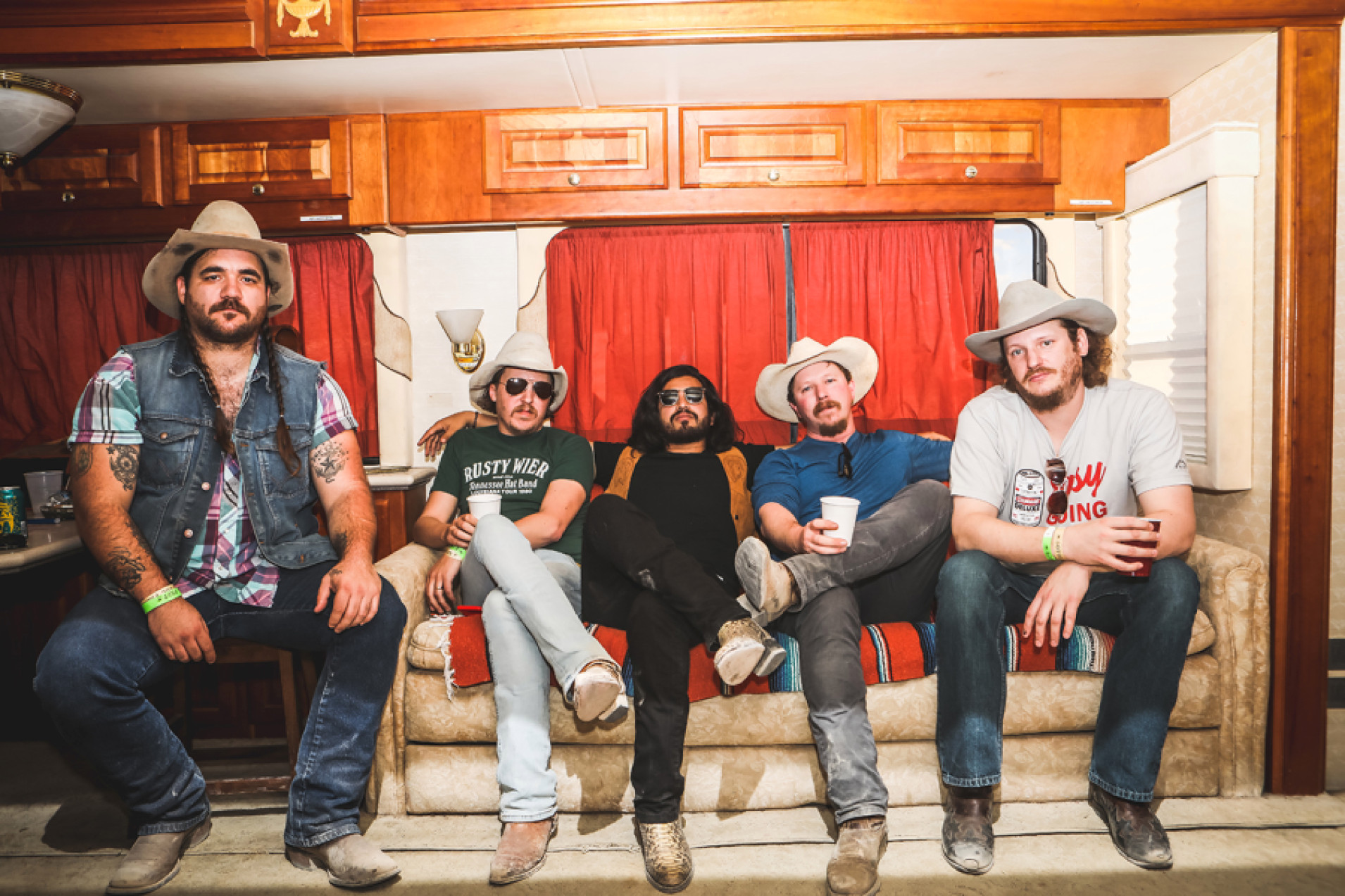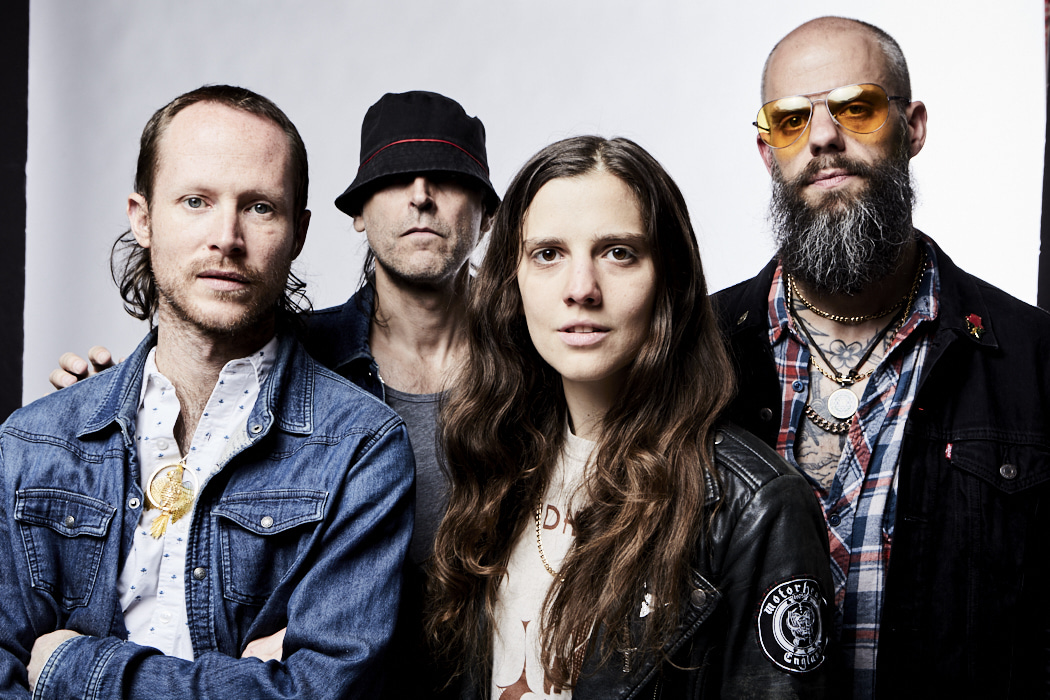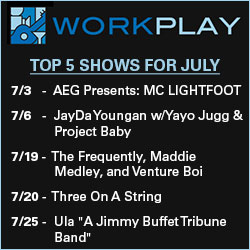Travis Meadows returns to Alabama for three performances
You may best know Travis Meadows as the author of three mainstream country radio singles: the current track “Better Boat” by Kenny Chesney, “Riser” by Dierks Bentley and “What We Ain’t Got” by Jake Owen. He’s also written songs for Blackberry Smoke, Brothers Osborne, Eric Church, Jake Owen, Lynyrd Skynyrd and Mary Gauthier, among many others. His own album, the 2011 release Killing Uncle Buzzy, helped him get sober and he reinvigorated his own career as an artist. He’s 53 now, and he returns to Alabama behind 2017’s First Cigarette.
A native of Jackson, Mississippi, Meadows moved to Nashville several years ago hoping only to continue on as a songwriter before finding his own path, too. Before a trio of shows in Alabama, he talked about that path, sobriety, his brief flirtation with the ministry, his own spirituality and his own songwriting process.
Your career didn’t really take off until you hit your 40s. How did you manage to persevere through all of that without a payoff?
Maybe I’m just too stubborn to quit. And I didn’t have a plan B; literally, I did not have anything else I could do. I had given up on being an artist; when I moved to Nashville, I was going to just write songs for other people and I had pretty much given up on being an artist altogether. So I was just writing for other people and one thing led to another; I made that record Killing Uncle Buzzy and it started growing legs and getting on famous people’s buses and then people started recording my songs and then they started inviting me to go play shows and the next thing I know I’m an artist again. So it was a very unexpected but wonderful gift.
What was that breakthrough moment? When you realized that being your own artist could be sustainable and you didn’t “just” have to write for other people?
I made that record and I don’t know if it was stupidity or a stroke of genius, but I had a conversation with a friend of mine, Barry Dean, who is an incredible songwriter here in [Nashville] and he was one of the ones that really encouraged me, “People need to hear these songs.”
And I said, “Nobody wants to hear songs about somebody getting sober. Especially not in a bar. That’s the last thing anybody wants to hear.”
He said, “Man, I think you may have missed the point of this record. This is not just a record about somebody getting sober. My biggest problem is I eat too much chocolate cake and I identify with every word in this record and I feel like the world deserves to hear it.”
So not too far after that, Jake Owen recorded “What We Ain’t Got” and it was quite successful, and I thought, “Holy crap, man. Maybe there’s something to this.”
And getting back to the stupidity or genius of it – somewhere in the middle of all of that – I made a Facebook post. I said, “Hey, would anybody like me to come play some songs in their back yard?” And man, the response to that one post kept me busy for a year. I never looked back. I’m still booked solid from this day; I haven’t had to scrape and scratch to find places to play since that day. It’s quite remarkable, actually.
Were you literally playing folks’ backyards?
Yeah. Just me and an acoustic guitar. The people that were listening at the time were working-class, Middle America. I knew they didn’t have a ton of money, so there was no way I could just go, “It’s going to cost this much to get me to leave my driveway or whatever. But if you can get 50 people – 75 people – to show up at maybe $20 a piece…” and it worked out beautifully. That’s kind of how it all started.
You had an interesting way of putting things a moment ago that I want to go back to – why do you think that people manage to connect to songs about getting sober in a bar? Because it is something that people seem to want to hear.
I came to a conclusion some years ago; I used to be a lot more…hippie…minded when I was younger. “Love is the answer” and “love is the connecting thread that unites us all.” And after living some time on this planet, I had a realization that love has nothing to do with it at all, as much as I wish that was the case. Suffering and pain and conflict is the thing that unites us all. From the White House to the poor house to the out house, suffering – at some point – is going to touch us all. And people relate to that. I can write a song and say I had a green couch and we drove a Pontiac and someone else would say, “Oh my gosh, we had a blue couch and we drove a Dodge!” but the suffering – the struggle – is the thing that people identify with.
It’s ironic that there’s a tale of a struggle in a large portion of my songs. And people seem to really identify with that.
A lot of artists struggle with being creative without the vice. How do you overcome that challenge? How do you convince yourself that you don’t need a bottle or whatever the case might be in order to be creative?
In the process of creating, part of the magic – there are a lot of people here in Nashville that have formulas, and they’re doing really well with that – I’ve never felt like I knew exactly what I was doing. I would reach my hand magically out into the air and pull down these little bits, “Oh, yeah, I think I can work with that.” I was always relying cheaply on something outside of myself; the muse or the creative spirit or whatever you want to call it. I always felt like the songs wanted to be written, they just need somebody to funnel them. Using and drinking were an easy way to decrease yourself so it was easy to reach out to that place, wherever that place is. I heard Tom Petty say something similar one time that I really identified with – “Maybe I’m not as crazy as I thought I was.”
When I got sober, it was challenging, because I had to trust that same process without any help. It was actually a fairly easy transition for me. I have some friends – one friend in particular – that did not write a song for a year. He pretty much thought his career was over because he could not write sober. But he eventually came back and ended up being one of the best writers in Nashville.
For me, it was an easy transition because of Killing Uncle Buzzy. That record saved my life. It saved my career. It gave me something to do in the downtime when I was processing all of this. I had a counselor suggest I write a journal, and I told them that I don’t keep a journal, but I write songs, so how about that? So I started documenting and processing those emotions of what I was going through and it gave me something to do and something to write about. From the time I started that record – from starting it to putting shrink wrap on it, it was about nine months. And I had never gotten nine months since I had been trying it. It took me six years to get nine months.
There was a point that you began in ministry. Why did you begin down that path and why did you leave it?
I had a bad acid trip and I saw the devil and I came to the conclusion at 24-years-old that if the devil is real, God must be real and I certainly wanted to be on the winning team. It turns out that I was very sincere in my motives, but I was also operating in a very naïve kind of faith, and I can’t do a little bit of anything. So I wound up – that path took me to 20-something countries all over the world; preaching and spreading some good news. And then I got to a really difficult spot in my life in my 30s, and everything that seemed so black-and-white and so easily answered…I felt like there was a list of things that – if you pray and if you pay your tithe and if you go to church and if you do this and this; love your neighbor, love God – everything is going to be okay. And I found myself in a place where none of that worked. It was very disillusioning, disheartening. I started asking questions that I had not taken the time to ask when I was younger and I didn’t like the answers. That sent me down a whole other set of roads that led me to the place that I am now.
I think that Christians get a real bad rap, so I want to navigate these waters delicately. There’s a place for spirituality in all of our lives. Ironically, after I went through several layers of bottom after bottom after bottom and started going to meetings and treatment centers, the first thing they wanted to talk about was God and that was a conversation that I did not want to have. Inevitably, I had to turn around and take a look at it and find the parts of it that I could use to keep me alive.
Have you reconnected with religion? Have you repaired any kind of connection with your spirituality that you feel like you lost?
How about we say that I live my life as if there was a God. There is a God, amen. That’s about as far as I can get these days. Strangely, I am much more content and I am much more comfortable in what I don’t know about God today than I ever was when I thought that I had it all figured out. I needed my God to be way bigger than I could fathom. “Here’s the problem; here’s the solution;” it’s never that easy. For me, it used to be black-and-white and now it’s just multiple shades of gray. It’s difficult for anybody to navigate those waters.
Did getting out of Mississippi ever feel hopeless to you?
Yes. Absolutely. I think that was one of the motivators that helped me run; when I could finally figure out a way to get out, I ran as fast as I could go. But I also thought Mississippi was my problem. It turns out, I was my problem, and I was everywhere I ran to – so that was its own, unique set of problems. The song “I Am Mississippi” on Old Ghosts and Unfinished Business was sort of my making amends with Mississippi. It was, “I’m sorry. I had you pegged wrong. It wasn’t you; it was me.”
Do you get back often now?
I have a couple of sisters that live there. I don’t go through very often. I’ve played a couple of shows there in the last year or so. I avoided it like the plague for many years because all of my firsts were there, and I had a tendency to lean toward pessimism, so I had a hard time remembering the good firsts. But I remember every one of the bad. Mississippi shined a light on that part of my life that I didn’t want to look at. So I avoided it for a long time, but now I am slowly taking steps to kind of get back and rekindle relationships with my sisters there. I’ve got a bunch of family in Mississippi, but I was always kind of on the outside looking in on that situation. My grandparents raised me; my father went one way and my mother went another way. I think those feelings of rejection gave me a reason to put up a huge wall toward anything that looked like family. I’m probably still working on some of that stuff.
Did you ever feel like you abandoned your hometown and the people there? Is there ever guilt about maybe “turning your back” on home?
Sure. Yeah, no doubt. A lot of times I don’t know how I feel about something until I write about it, and again, that was one of the main reasons I wrote that song “I Am Mississippi.” I actually grew up in South Jackson. We had 16 acres behind my house. I was kind of bullied and not treated well in my neighborhood, so I spent a lot of time in those woods. That gave me the aspect of “country,” but I always considered myself a “city boy.” I moved to New York City for the first time and I realized how country I was [laughs]. Through a long process, I came to terms with – there’s some of the best food you’ll ever eat in your life, some of the most kind, give you the shirt off their back people are in Mississippi.
I remember when we had one of those hurricanes coming through and the news media referred to Mississippi as the “land mass” between Alabama and Louisiana. [laughs] I’m like, “We have a name!” We get a bad rap. Maybe some of it is self-deserved. But what are you going to do?
How is the writing that you do for yourself demonstrably different than the writing that you do for other artists and how do you define that line?
I don’t know that it is different outside of different butts being in the chairs. The process is pretty much the same. It takes some of us a long time to find our voice. And then we have to figure out what we want to say with it. When you get in the room with another artist. There’s always the greeting – if I’m by myself, I’m having a conversation with myself. What do I want to say? If I’m writing with an artist, it’s, “What do we feel like needs to be said that hasn’t been said? What’s a creative way of saying that?” And hopefully, somebody goes, “Well, I have this thing I’ve been working on. I’ve been thinking about this a lot lately.” And it kind of starts to manifest.
But I don’t know that the process is all that different. Once you trust the process – it’s not a [expletive] match. We’re not trying to outwrite the other person. We’re trying to tell the truth in a manner that everybody can relate to, and I’ve been really fortunate that all of the people that I write with want the same thing. They just want to say something and say it well.
You’re in this unique position where there’s a version of Nashville that’s on the radio and that Nashville borrows a lot from the bars in Nashville that you play in. But you’re part of both of those worlds. Why is there such a huge gap between the two sides and what is the secret to ever bridging that gap?
I just try to be authentically me all the time. And I throw the rest of it into the luck filing cabinet. It was nothing purposeful. It was never, “if I could put this tempo – 144 beats per minute – and say things in this kind of manner.” I’ve never done that. I’ve always just been chiefly concerned about the truth and trying to tell the truth. I’ve been really, really lucky. I think it’s limited, the opportunities that I’ve had because I don’t write light songs very well. And most of the things being played on the radio are just things people can bob their head to on the way to and from work and between the weather and the news. They want to have a good time. There’s a lot of people that have some bad things to say about that and I can’t do it. If you can figure out a way to make money in the music business, you’re doing the impossible. With streaming and the way things have been; people spend all day at a bank or in a cubicle or under the hood of a car. They think all day long and I can’t blame them for – “I don’t want to think. I just want to bob my freaking head and get home in this traffic.” I can’t blame them. Some people have figured out how to do that very well, but I haven’t had any of that action on the radio. Because I don’t write those kinds of songs.
“Better Boat” – Kenny Chesney’s new single – is actually only my third single that I’ve had on the radio. I’ve had a bunch of cuts – deep cuts that never make it to the radio. I’m grateful, but I wouldn’t call that bridging any big gaps because there are a lot of folks out there that have gotten a lot more action on the radio than I do. I’m really proud of the songs that I have had. I’m not sure everybody writing songs in Nashville can say that. Maybe they can. Maybe they can.
Travis Meadows comes to Birmingham on Thursday, December 13 to perform at Zydeco. He’ll open for Paul Thorn at the Shoals Theatre in Florence on Saturday, December 15 and he’ll swing through Waverly, Alabama for a show at the Standard Deluxe on Sunday, December 16.



